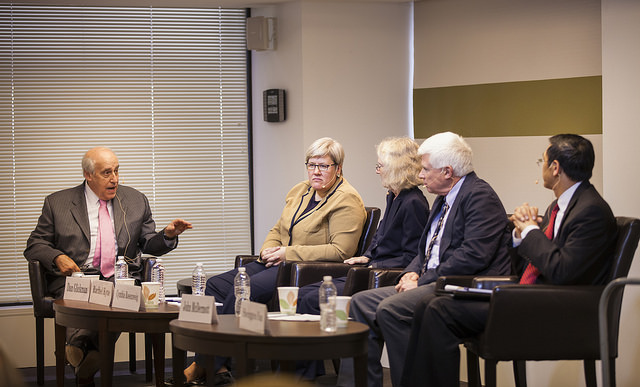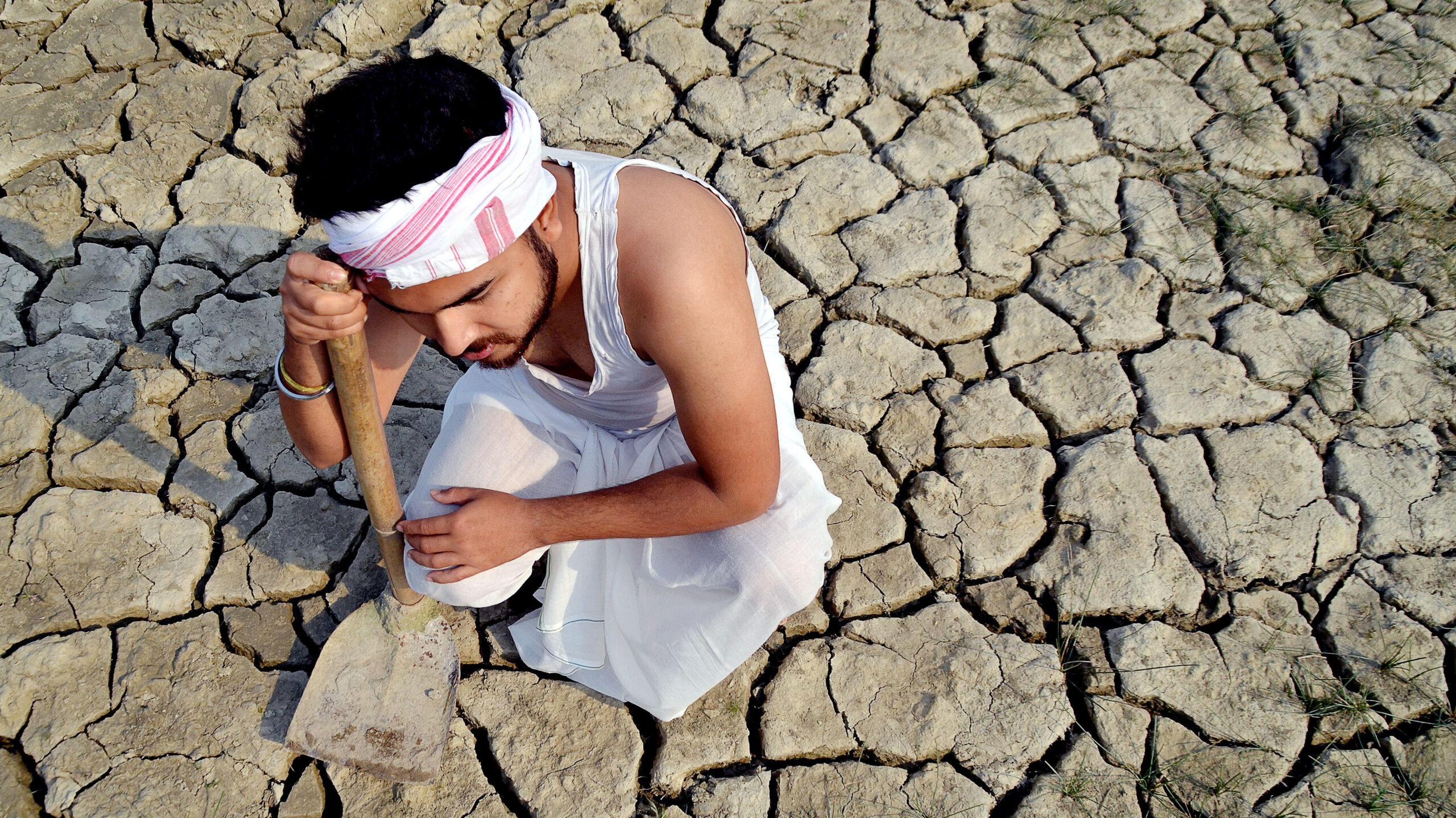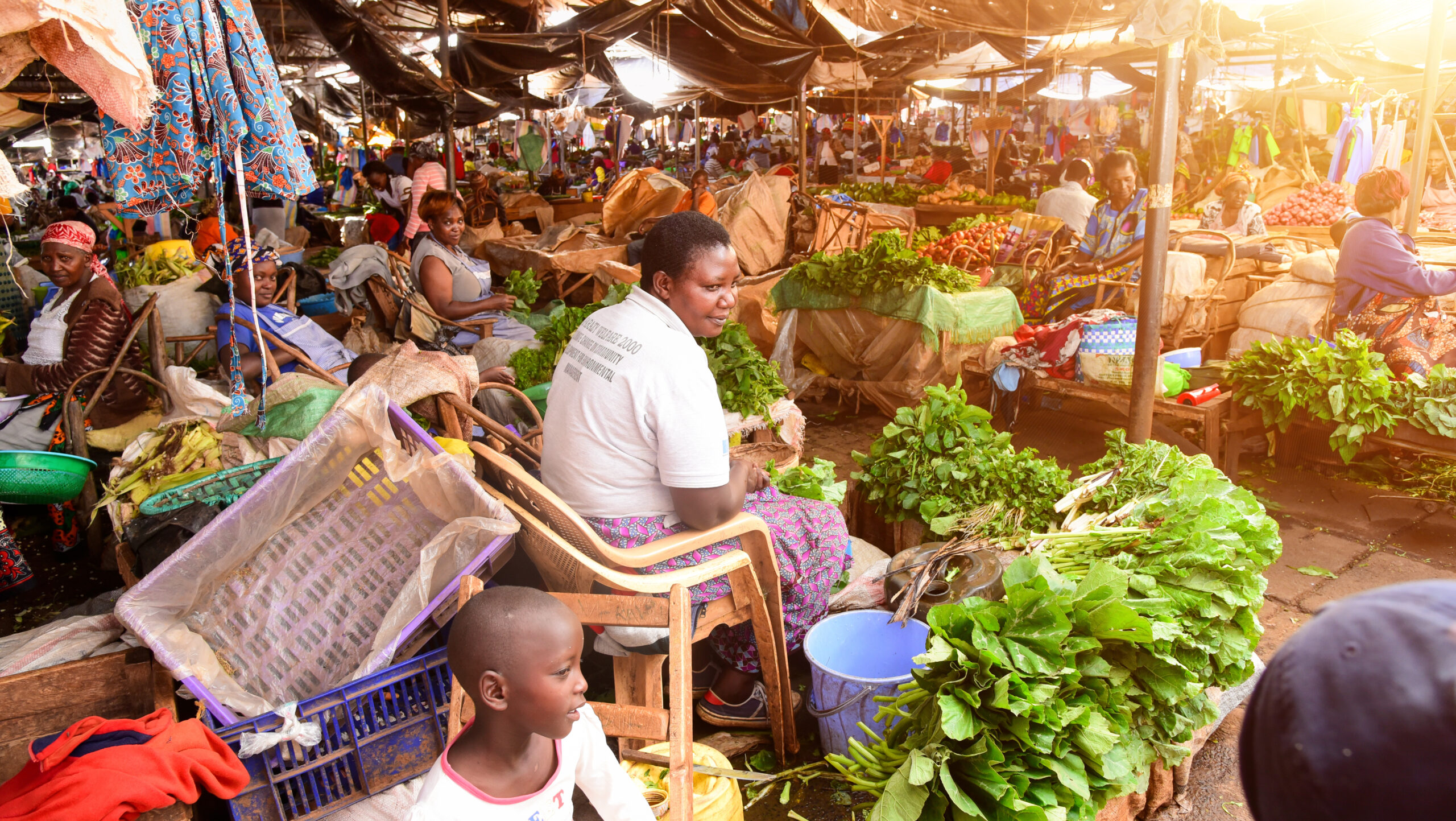In less than two weeks, heads of state from around the world will gather in New York for the UN Climate Change Summit. As a mounting body of evidence—including clear examples from Bangladesh and Fiji—makes clear, climate change is putting global food security at risk. How can these leaders make real progress in helping build a more resilient global food system in an era of climate change and weather shocks?
A panel of experts on development and climate change policy gathered at IFPRI last week to discuss what’s working now, what might work in the future, and what steps the world’s leaders should take.
IFPRI Director General Shenggen Fan was joined by World Bank Group Vice President and Special Envoy for Climate Change Rachel Kyte, CGIAR Research Program on Agriculture for Nutrition and Health Director John McDermott, and Senior Research Scientist at Columbia University’s Goddard Institute for Space Studies Cynthia Rosenzweig. Dan Glickman, former U.S. Secretary of Agriculture and current co-Chair of the Global Agricultural Development Initiative at the Chicago Council, moderated the fast and free-flowing discussion with pointed questions.
The current food system is broken, panelists agreed. Eight hundred million people go hungry every day, and our natural resource base on which all food production depends is declining due to unsustainable farming practices. Climate change is making an already perilous situation even worse. Weather related shocks are increasing in frequency and intensity, and poor people in developing countries often are hit hardest.
Climate-smart agriculture is one way to break the negative cycle. This entails farming practices that result in a triple win: increasing yields for better food and nutrition security and incomes, helping farmers adapt to climate change, and reducing carbon emissions. But how can researchers, policymakers, and farmers make this a reality? The panelists offered a number of issues to consider as well as concrete actions to take.
Invest in both technological and political innovations. On the farming side, promising technologies include drought- and heat-tolerant seed varieties and biofortified crops that increase the nutritional value of staple crops, such as maize and rice. Scaling them up, however, requires investment in research, especially at the national level.
On the policy side, tweaking counteractive policies may be more useful than creating new regulations, Fan suggested. For example, policymakers could replace inefficient fertilizer and water subsidies with smart social protection for farmers–and invest the money saved into research and development for more nutritious crops. Farmers also need policy tools such as social protection programs and weather insurance to help them manage the risks that come with unpredictable climate shocks.
In short, the same effort and funding that has been invested in climate change research must now be put toward making people resilience to it. “There have been billions of dollars spent on climate model development to clarify those projections, Rosenzweig said. “Basically, we need that same effort for the impact sectors.”
Bring together many sectors. Building resilience across development sectors is an ongoing process that requires developing long-term relationships between groups that have traditionally worked in separate silos. These include farmers, regional and agricultural planners, government, industry, and researchers in agriculture, nutrition and public health, forestry, and land.
Glickman asked each panelist which area of investment would have the greatest impact on the ground. Rosenzweig emphasized producing a regional and global assessment of how agriculture is adapting to climate change. McDermott suggested speeding up innovations. “There will be failures,” he said. “Fail quickly and move on.” Kyte asked the audience to consider funding the gene banks in perpetuity. “If you give just $350 million, you get to endow the food crops that we will need for the future. That is a bargain!” she said.
As for the political leaders coming to New York in two weeks, Glickman asked the panelists to share what the climate change summit attendees could do to address these challenges.
Rosenzweig offered three recommendations for summit participants: link mitigation and adaptation in all programs, include an analysis of the climate impact of every investment, and build and maintain a strong relationship with scientists—including adding funding for research in every project. “There is a tendency to say, ‘Thank you, scientists. Check, we got it—we’ll take it from here,’” she said—a mistake when the climate situation is changing constantly.
Kyte added that the summit—the first discussion of climate change among heads of state in more than five years—sends a message to world leaders: “This is your business. It is not delegable.” She highlighted the need for material leadership on climate change. “Drive the economy in a way that it becomes lower carbon and that it becomes more resilient. Now.”







